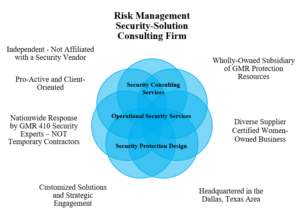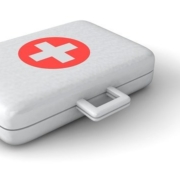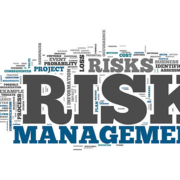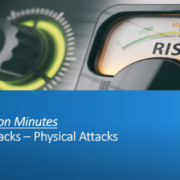Civil Unrest Preparedness Quick Guide
Civil Unrest Preparedness
Advanced preparedness can help reduce risk
Preparing for any type of crisis or emergency is a shared responsibility within an organization. Advanced preparedness efforts can help reduce risks. Our Security Experts have outlined some of the steps to consider taking when such events require organizations to modify plans on the fly and when emergencies develop.
PREPARE
| Assess | Operations | Security |
| 1. Survey and remove loose items from the surrounding area that can be used as projectiles | 1. Notify of closing or changes in work schedules | 1. Prepare for additional security presence |
| 2. Remove all trash cans, construction cones and other debris | 2. Adjust janitorial cleaning schedule
|
2. Prepare for early dismissal and evacuation |
| 3. Wet landscaping to deter fires | 3. Update local, state and federal law enforcement points of contact | 3. Prepare to shelter in place |
| 4. Document locations of all cameras and ensure they are in working condition | 4. Update social media accounts | 4. Prepare to provide facilities and shelter to police and other first responders, if requested |
| 5. Stock plywood and plexiglass to prevent damage to windows | 5. Update internal and tenant communications lists | 5. Plan and identify a site for remote operations |
| 6. Ensure fire extinguishers are in working condition and readily available | 6. Update emergency vendor contacts | |
| 7. Determine closure and evacuation guidelines | ||
| 8. Identify alternative transportation |
RESPOND
| Assess | Operations | Security |
| 1. Monitor local and social media | 1. Operations Team, Security, Staff and Neighboring Property Managers | 1. Notify police of activity at the site |
| 2. Activate local, state and federal law enforcement contacts to ensure timely receipt of intelligence | 2. Share detailed information internally within team | 2. Use caution disseminating information; Facts only |
| 3. Monitor response posture of similarly situated businesses, facilities or organizations | 3. Stay in continuous contact with neighboring property and security managers | 3. Coordinate with adjacent properties for phased evacuation in area |
| 4. Ensure leadership and chain of command visibility | 4. Plan to assist neighboring properties, especially if adjoining | 4. Coordinate with first responders in area to anticipate and assist with vehicular and pedestrian traffic |
| 5. Participate in Joint Emergency Operations Center (EOC) | 5. Refer to company policy regarding communicating with the media | 5. Coordinate with any garage management for orderly and expeditious egress |
| 6. Use communication technology networks for group email, texts and calls | ||
| 7. Utilize external networks if cellular is overloaded (Twitter, etc.) | ||
| 8. Direct inquiries to monitor local, social media, etc. |
RECOVER
| Assess | Operations | Evaluate |
| 1. Damages | 1. Set up remote operations center if necessary | 1. Security procedures |
| 2. Reopening, based on area safety concerns, state of emergency status | 2. Communicate status internally and externally | 2. Lessons learned |
| 3. Develop timeline for any required repairs and clean-up | 3. Participate in local police “hot wash” | |
| 4. Open for business | 4. Coordinate internal after-action review |
The potential steps outlined above are examples for consideration for firms thinking about their own plans. Please contact 410 for preparedness planning tailored for your organization.
Mary Gates is a vice-president of GMR 410, LLC, a risk-solution security consulting firm and wholly owned subsidiary of GMR Protection Resources Inc. Learn more at www.gmr410.com.
ABOUT GMR 410, LLC
Our security consultants have decades of experience advising regional and global clients across numerous industries including automotive, construction, energy, financial, real estate and more. GMR 410’s services help create a safe environment with thorough threat assessments, policy and procedure review and development, and security audits. Unfortunately – and often without warning – a crisis occurs. Such events may include natural or man made disasters or criminal activities. Tap into GMR 410’s experience to ensure that you and your teams are prepared to respond to any crisis management or emergency situation.









